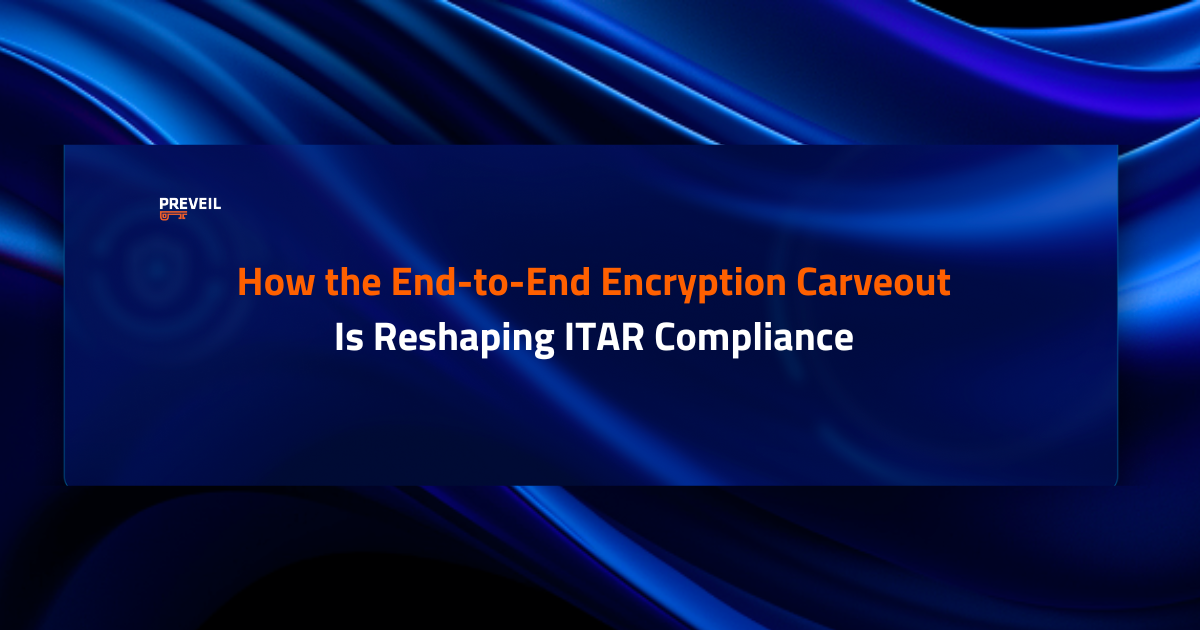The International Traffic in Arms Regulations (ITAR) is a critical framework designed to control the export and handling of defense-related articles and services in the United States. ITAR enforces stringent controls to ensure that sensitive information and technology remain accessible solely to U.S. persons, barring certain exemptions. This regulation impacts numerous sectors, posing significant challenges particularly in data storage and sharing.

Traditional IT systems often rely on servers that can view and access unencrypted data, even if they utilize encryption during data transmission and at rest. This visibility necessitates that access to such data must be strictly limited to U.S. persons to comply with ITAR regulations. However, the global placement of servers used in systems like email and file sharing often complicates adherence to these rules.
For instance, when a U.S. company sends an email to a business in Europe, the recipient’s email server, located in Europe, is likely managed by non-U.S. personnel. This arrangement can lead to significant non-compliance issues. For example, a U.S. firm was fined $20 million because ITAR-sensitive data was inadvertently stored on email servers in Germany. Furthermore, even when servers are located within the U.S., compliance challenges persist as it is common for these servers to be accessible by non-U.S. persons, making stringent access controls crucial regardless of server location. This global accessibility and the need for rigorous management of access by only U.S. persons make maintaining ITAR compliance especially challenging for traditional systems.
The Cloud Systems Conundrum for ITAR
The rise of cloud services markedly intensified these challenges. While cloud computing offers global benefits, ensuring ITAR compliance became complex due to the worldwide distribution of servers and personnel. Major U.S. cloud providers like Amazon and Microsoft invested heavily to create ITAR-compliant environments such as Amazon GovCloud and Microsoft GCCH, located in the U.S. and staffed by U.S. persons. These effective yet costly solutions necessitated significant financial investments and extensive overhauls of existing infrastructures.
The Game-Changing 120.54 End-to-End Encryption Carveout
The introduction of the ITAR 120.54 end-to-end encryption carveout represented a significant breakthrough in managing sensitive data both securely and cost-effectively. Developed by the U.S. State Department in close consultation with the National Security Agency (NSA), this regulation streamlined compliance by establishing three essential requirements:
- Mandatory End-to-End Encryption: ITAR data must be encrypted from the point of origin to the point of destination, ensuring no intermediary can access the unencrypted data.
- Inaccessibility of Encryption Keys to Cloud Providers: Cloud service providers must not have the ability to decrypt the data. All decryption keys are held exclusively by U.S. persons or individuals specifically authorized under ITAR by the concerned entity.
- Use of Secure Encryption Standards: Only robust encryption methods, such as FIPS validated algorithms or AES, are allowed for securing ITAR data. These standards ensure that the encryption techniques meet the highest security benchmarks.
These stipulations mean that the physical location of servers and the nationality of server administrators become irrelevant as long as the data remains encrypted and inaccessible to those without proper authorization.
Economic and Security Advantages
The 120.54 carveout dramatically lowers the barriers for organizations, especially small and medium-sized enterprises, to achieve and maintain ITAR compliance. Organizations can now utilize end-to-end encrypted cloud services like PreVeil, which offer secure email and file-sharing systems analogous to popular platforms such as Dropbox, OneDrive, and Google Drive, but with the added security required for ITAR compliance.
Implementing such systems is straightforward and can be integrated seamlessly with existing IT infrastructure such as Office 365 or G Suite and does not require significant initial investments or ongoing maintenance costs. With services typically costing between $20 to $40 per month, the financial savings are substantial compared to the investments required for traditional ITAR-compliant systems.
Furthermore, this approach enhances the security of ITAR-regulated data since it always remains encrypted from the sender to the recipient. This effectively renders it immune to attacks, ensuring that even if intercepted, it remains indecipherable.
Conclusion
The ITAR 120.54 end-to-end encryption carveout represents not just a regulatory update, but a paradigm shift that simplifies compliance, reduces costs, and enhances the security of sensitive data. This development allows more organizations to confidently participate in defense-related activities, secure in the knowledge that their compliance and data security meet the highest standards. As we advance, the importance of embracing these innovative, cost-effective solutions will only increase, marking a significant milestone in the evolution of ITAR compliance.